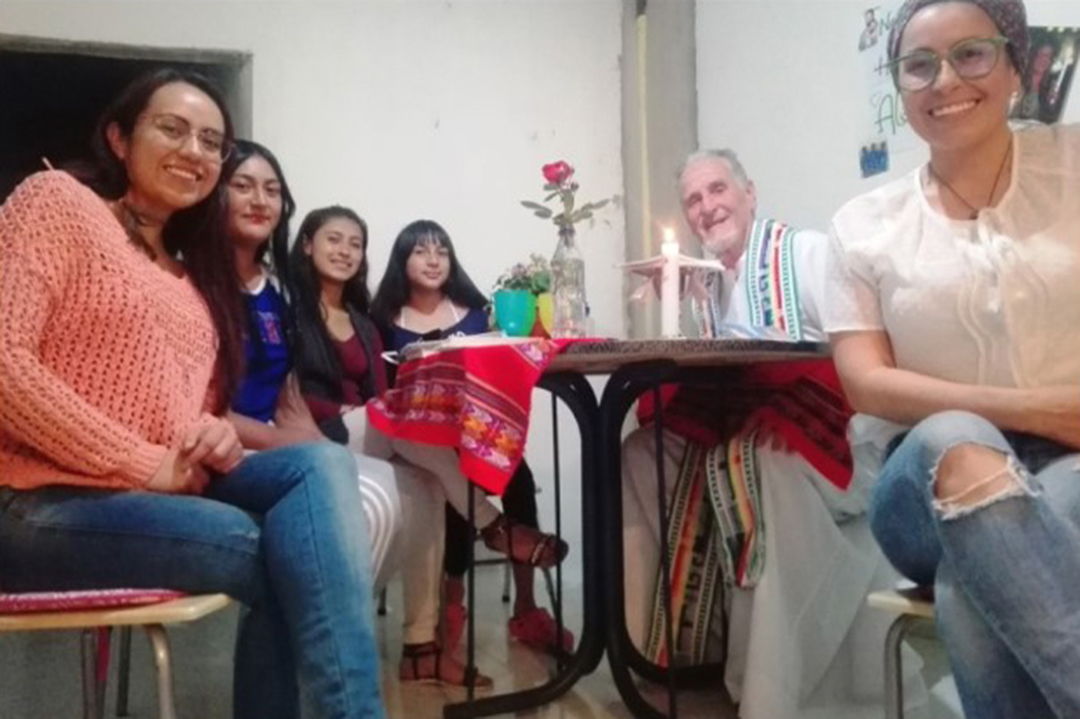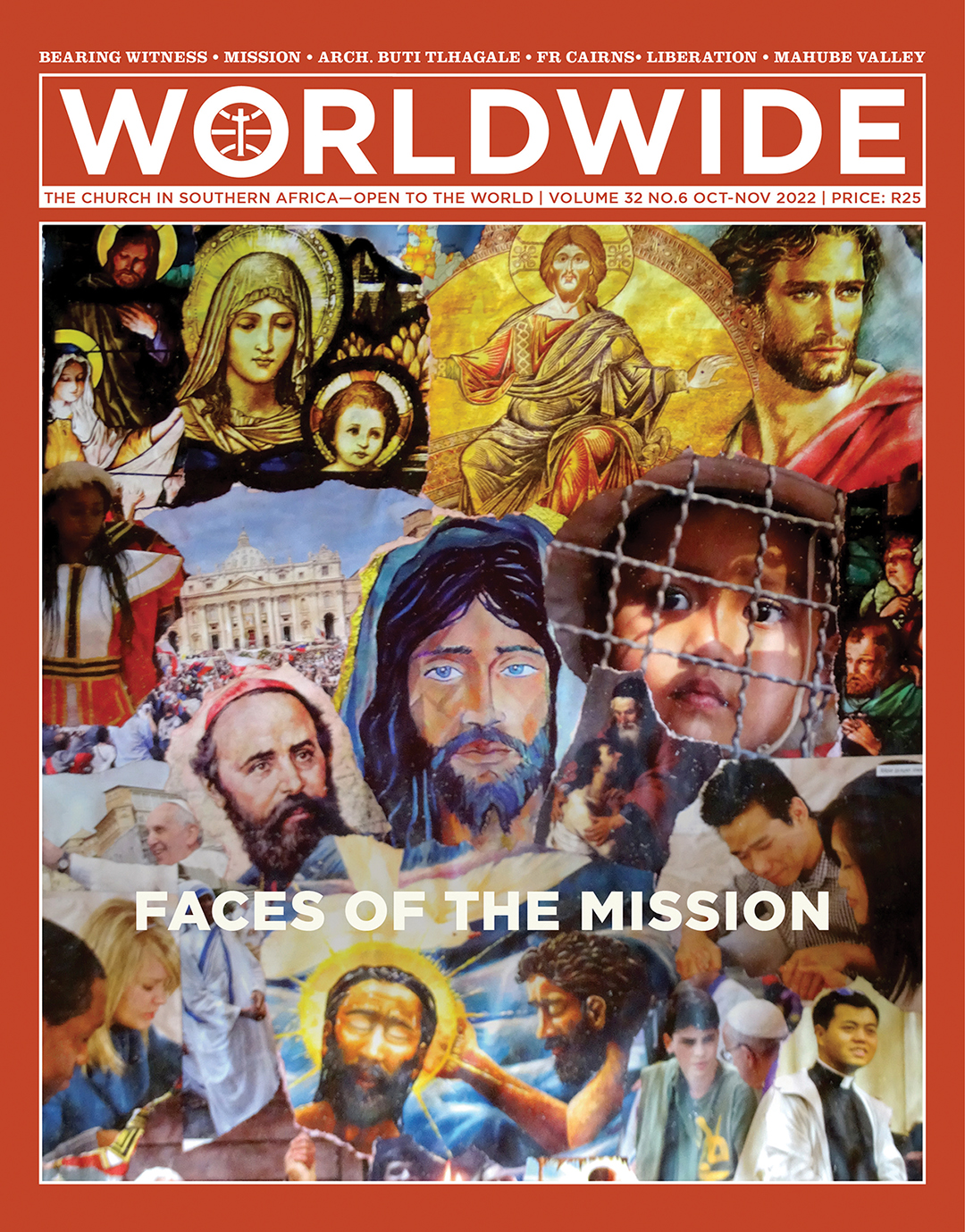WORLD REPORT • MISSION AD GENTES

Mission is not giving, but giving oneself
Is mission Ad gentes still relevant? The experience of a true encounter with the Risen Christ cannot be silenced. It is a gift to be shared with any person, in any part of the world. However, the different contexts and circumstances condition the way it is proclaimed
BY Olga Consuelo Vélez | Doctor in theology, Bogota, Colombia
RECENTLY, THERE was a story in the news about a nun who had been in India for more than fifty years. She served as a missionary, doctor and teacher and, instead of having her residency renewed to stay there, she was ordered to leave the country in ten days. The immigration authorities did not give reasons for this decision, but it is presumably understood that the country’s policy wants to prevent the growth of Christians and to encourage Hinduism to prevail regarding the religious practice among the population. Certainly, this is not the first time that we have heard news of this kind. It has been happening in different places around the world. In addition, Christians have suffered violence in some countries at the hands of fundamentalist groups.
All these situations raise some questions about the mission ad gentes, namely evangelization beyond one’s borders: does it make sense to go to other countries which are mainly non-Christian? In the present context of religious pluralism:
what is the point of proclaiming the Gospel of Jesus Christ? Would it not be enough for each person to practise their religion in which he or she was born and not seek to proclaim the Christian faith to others? Does it make sense to consider non-Christian countries as mission countries? Is the missionary mandate of Jesus Christ still valid today?
The missionary dimension of the Christian life is inseparable from it
It is not easy to answer these questions because of contemporary complex realities (not because the missionary mandate of Jesus is meaningless). However, many communities dedicated to the mission ad gentes are already offering valuable reflections which would shed light on these questions. Here, therefore, we only intend to make a few comments with the aim of encouraging reflection, without claiming to give definitive answers.
Missionary urge
The missionary dimension of the Christian life is inseparable from it. To “give freely what one has received freely” (Mt 10: 8) or “not to be able to stop speaking of what one has seen and heard” (Acts 4: 20) is an existential experience of those who have met Jesus Christ, not on their own merits, but through the divine initiative of the One who came to meet them. Therefore, mission makes sense and it will always make sense, because it is not an initiative of one’s own, nor a message to be taught, but a life experience to be shared.
Everything that builds humanity and all those who decide to do so are building God’s kingdom
The way of understanding and living the mission has to be continually readdressed in order to respond to the challenges of each moment. Moreover, it is not possible to give a single response, but as many as the places require, because each situation is very different and we have to respond to all of them. Today, we are even more aware that mission countries are not only those where there is no Christian majority, but also in former predominantly Christian countries, where secularism has increased so much, that a new proclamation of the kerygma (first proclamation) is worthwhile because many no longer know the minimum fundamentals or basics of the Christian faith.


But why to do it? How do we do it? What is the point? To answer these questions, the mystery of the Incarnation can enlighten us: Our God became human in Jesus of Nazareth and, therefore, all that is human becomes a divine presence. Moreover, it is only in the human nature that we can find and love God. Hence, the geographical displacement to other places is fully valid because there are sons and daughters of God everywhere, whom we must love and serve. However, this can be done by anyone, without having to resort to a religious confession to do so. In fact, many people do it purely for humanitarian reasons and with total generosity. What then is specific to the Christian faith? Everything that builds humanity and all those who decide to do so are building God’s kingdom (to use Christian terminology) and that is what pleases God:
“Do you not know what is the fast that pleases me? To break unjust chains, to untie the knots of the yoke, to let the oppressed go free and to break every yoke. You shall share your bread with the hungry, the homeless poor shall come into your house, you shall clothe those whom you see naked, and you shall not turn your back on your kinsfolk” (Is 58: 6, 7).
Witnesses of love
However, when all of the above is done from a mission perspective, then it carries specificity because it bears witness to the way Jesus showed us who God is. The God revealed by Jesus is the Father-Mother who loves human beings without limit or measure (Lk 6: 35) and loves them not because they are good and full of virtues, but simply because they are His sons and daughters. His distinctive feature is the gift not of things, but of Himself. This is how Jesus made it concrete with His life: “The Father loves me because I lay down my life, and will take it up again. No one takes it away from me, but I will lay it down of my own free will. It is in my hands to lay it down…” (Jn 10: 17, 18) That is to say, the mission that is worth promoting must be marked by self-giving, by giving oneself to all, with a love which Paul describes in the first letter to the Corinthians, when he says “love is patient, helpful, without envy, without appearance, without seeking one’s own interest” (1 Cor 13: 4–7).
Today one could say to the missionaries what Paul said: “Meanwhile, we proclaim a crucified Messiah. For the Jews, what a scandal! And to the Greeks, what a folly! Yet He is Christ, the power of God and the wisdom of God for those whom God has called” (1 Cor 1: 23, 24). The mission ad gentes may be a ‘scandal’ for some and ‘folly’ to others, but it is the divine wisdom that invites us to give ourselves to all, at all times; without fear of the difficulties and misunderstandings that come with the human reality that God has entrusted to us.


